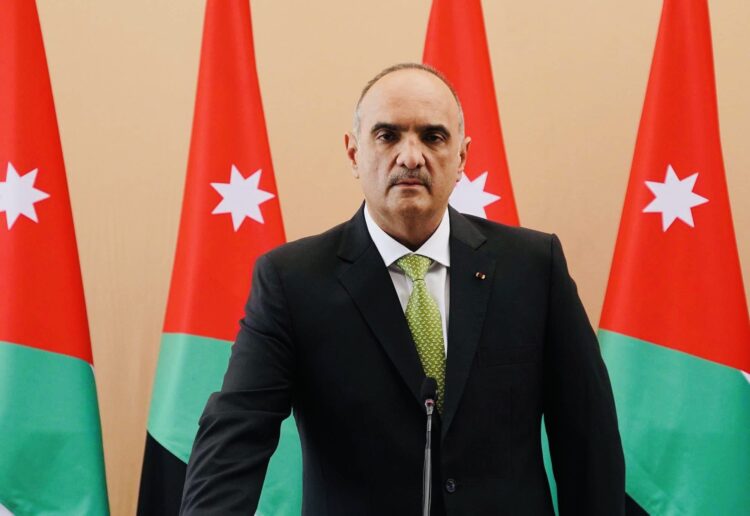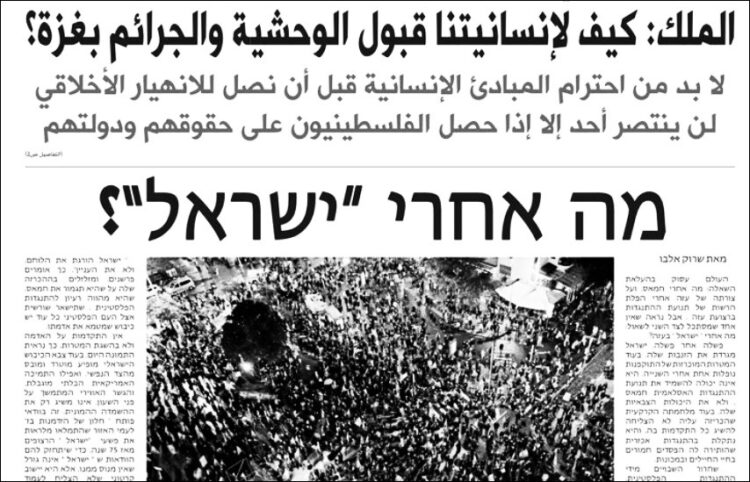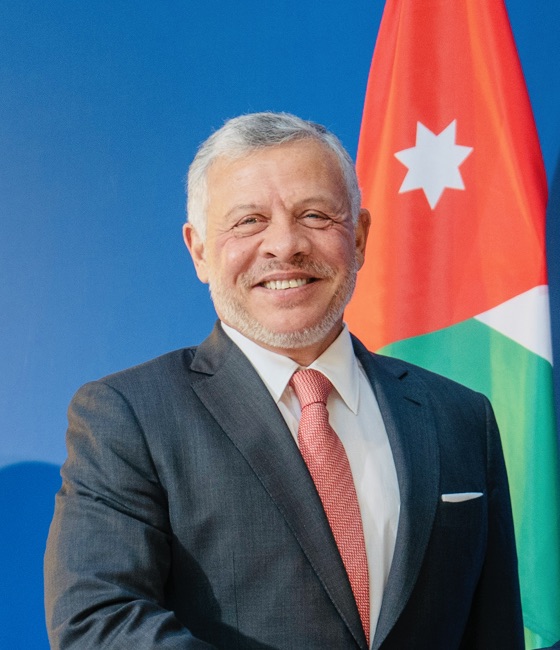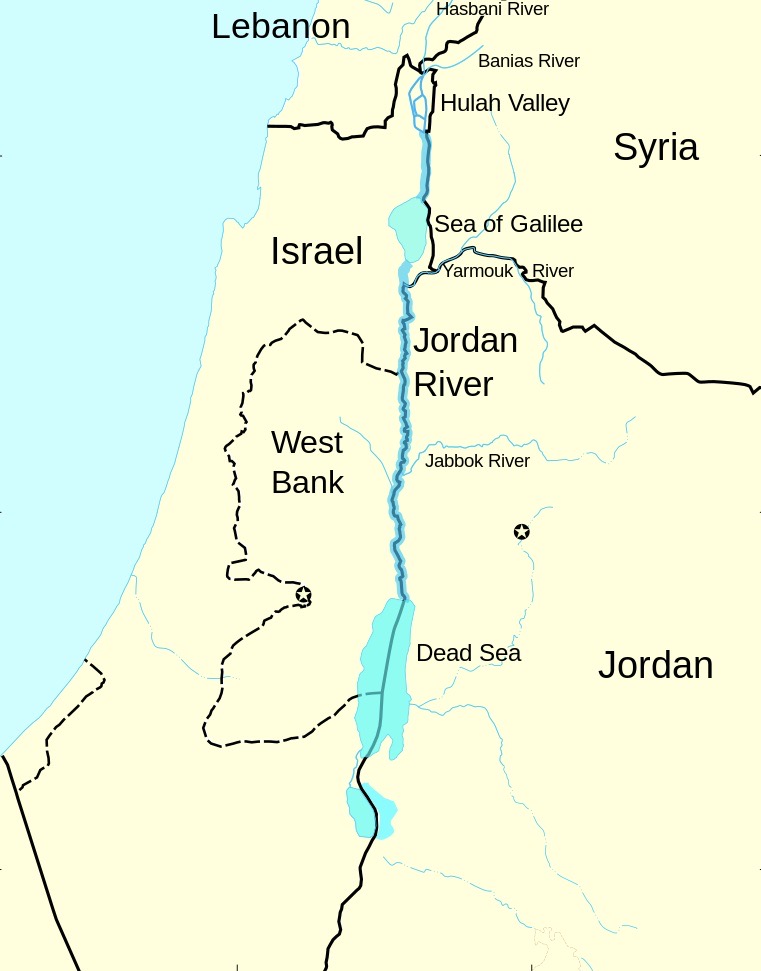The war that Israel is currently waging against Hamas in the Gaza Strip has adversely affected its bilateral relations with Arab and Muslim countries and a host of other nations.
Since Israel’s invasion of Gaza on October 27, in response to Hamas’ massacre of 1,200 Israelis and foreigners on October 7, two Arab states — Jordan and Bahrain — and two Muslim countries — Turkey and Chad —have denounced its ground offensive, withdrawn their ambassadors in Tel Aviv, and repeatedly called for an immediate ceasefire.
Morocco, the United Arab Emirates and Sudan, which normalized ties with Israel under the 2020 Abraham Accords, have criticized Israel’s offensive and demanded a truce, but have not gone as far as recalling their ambassadors or breaking relations.

Egypt, the first Arab state to sign a peace treaty with Israel, has reportedly issued a warning that it may sever relations with Israel if it permits Palestinian civilians to flood into the adjacent Sinai Peninsula. Gazans must “stay steadfast and remain on their land,” President Abdel Fattah el-Sisi of Egypt said recently.
Israel insists it has no intention of forcing Palestinians into Egypt.
As tensions between Israel and Arab and Muslim nations have mounted, several countries equally critical of Israel’s military campaign — Colombia, Chile and Honduras — have pulled their ambassadors out of Israel.
South Africa’s Parliament passed a motion calling for the closure of Israel’s embassy in Pretoria and the suspension of diplomatic ties, but it was left to President Cyril Ramaphosa to implement this measure.
Bolivia took the most drastic step, severing relations with Israel altogether.
Jordan, the second Arab state after Egypt to recognize and establish formal relations with Israel, was one of the first countries to recall its ambassador.
Jordanian Foreign Minister Ayman al-Safadi recalled envoy Rasan al-Majali on November 1 after condemning “the raging Israeli war on Gaza, which is killing innocent people and causing an unprecedented humanitarian catastrophe.”

The Jordanian government let it be known that Israel’s ambassador in Amman, Rogel Rachman, should not return to his post until hostilities in Gaza cease and the humanitarian crisis ends. Due to threats against the Israeli embassy, Rachman had already been ordered back to Israel.
Within days of recalling the Jordanian ambassador, Safadi said that any Israeli attempt to “change geography and demography” in Gaza would imperil Jordan’s 1994 peace treaty with Israel. Jordanian Prime Minister Bisher Khasawneh warned Israel that the displacement of Palestinians from Gaza and the West Bank would be seen by Jordan as a “declaration of war.”

On December 10, Safadi stepped up his rhetoric, saying that “Israel has created an amount of hatred that will haunt this region (and) define generations to come.”
King Abdullah’s Palestinian wife, Queen Rania, weighed in as well by denouncing Israel over the humanitarian crisis in Gaza.

Shortly after Jordan’s ambassador returned to Amman, the Jordanian newspaper Al Ghad ran a front-page editorial in Hebrew and Arabic claiming that Israel’s days were numbered and predicting that it would collapse under the weight of internal and external problems. In the same edition, Al Ghad published a malicious article falsely accusing Israel of harvesting the organs and skins of Palestinian prisoners and printed a nasty caricature portraying Israeli leaders as bloodthirsty demons.

This is not the first time that Jordan’s relationship with Israel has hit rock bottom. Israel and Jordan have weathered several crises in the past three decades, all revolving around the incendiary Palestinian question.
In 1997, King Hussein threatened to break relations with Israel after a botched attempt by the Mossad to assassinate Khaled Mashaal, a Hamas leader based in Amman.
Further tensions erupted during the second Palestinian uprising, which raged from 2000 to 2005. A new crisis arose in 2014, when a Jordanian judge was fatally shot by Israeli soldiers at the Allenby bridge border. In 2017, Israel infuriated King Abdullah, King Hussein’s successor, after a guard at the Israeli embassy killed two Jordanian citizens.
Israel’s relations with Jordan reached another low point in 2020 after Israeli Prime Minister Benjamin Netanyahu said he would annex the Jordan Valley in the West Bank.
The following year, Crown Prince Hussein bin Abdullah, King Abdullah’s son, abruptly cancelled a planned visit to the Temple Mount due to a disagreement regarding his security detail. As a result, Netanyahu was forced to cancel a visit to the United Arab Emirates because the Jordanian government delayed the approval of his flight path over Jordan.
Last April, in another unsettling incident, Jordanian parliamentarian Imad al-Adwan was arrested at a border crossing on suspicion of smuggling arms and gold into Israel.
The Temple Mount, the third holiest place in Islam, has been one of the main sources of contention between Israel and Jordan.
During the 1967 Six Day War, Israel captured East Jerusalem, the site of the Temple Mount. Under the “status quo” arrangement that prevails to this day, Israel permitted Jordan to be its custodian and agreed that Jews would not be allowed to pray there. Jordan, in turn, agreed that Israel would be in charge of security. In recent years, however, right-wing Israeli nationalists have broken that agreement, much to Jordan’s indignation.
The unresolved Palestinian problem, which is directly related to the Temple Mount issue, continues to be a recurring source of trouble between Israel and Jordan. While Jordan advocates a two-state solution, Israel under Netanyahu rejects Palestinian statehood. Consequently, Netanyahu’s relations with King Abdullah have been frosty.

In 2019, King Abdullah acknowledged that Jordan’s relations with Israel had plummeted to “an all-time low.”
Netanyahu’s short-lived successors, Naftali Bennett and Yair Lapid, managed to improve relations with Jordan in 2021 and 2022 while they were the prime ministers.
Netanyahu, having reclaimed the premiership last December, visited Jordan this past January, promising King Abdullah that the status quo on the Temple Mount would be preserved. While Netanyahu focused on “strategic, security and economic cooperation” between Israel and Jordan, King Abdullah’s office focused on the importance of respecting the status quo on the Temple Mount and advocated Palestinian statehood.
Despite their very real differences, Israel regards Jordan as a strategic partner and a vital buffer state between itself and Iraq, which is aligned with Iran, Israel’s deadliest enemy. And although the majority of Jordanian Arabs, particularly its Palestinian citizens, oppose Jordan’s peace treaty with Israel, Jordan and Israel cooperate closely in the fields of intelligence, security, water and energy.

Jordan, however, has been conspicuously absent from the Negev Forum, which brings together Israel, Morocco, Bahrain, the United Arab Emirates, Egypt and the United States in cooperative projects.
Jordan might well join the Negev Forum if the Palestinians achieve statehood or seriously embark on the path toward this objective. But until then, Jordan will likely boycott the Negev Forum in a show of solidarity with the Palestinians.
